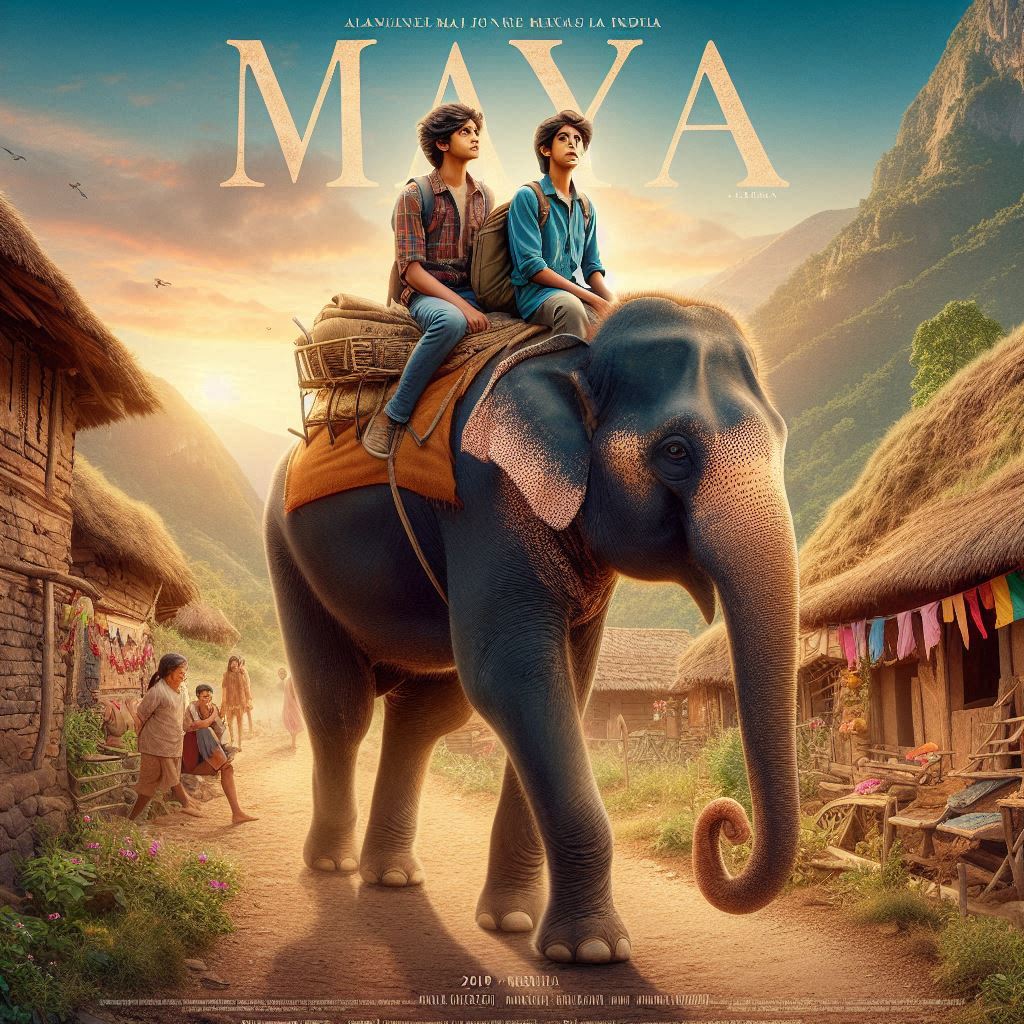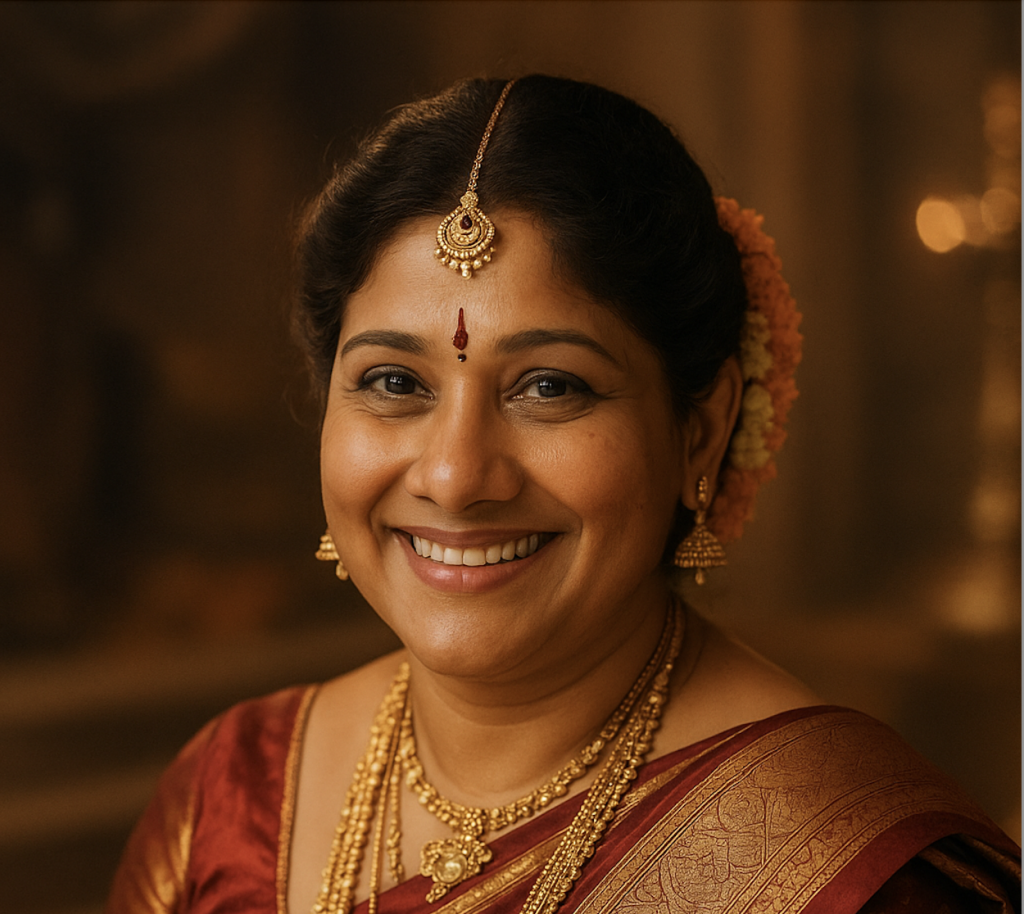From elephants on screen to sacred threads at home, the versatile actress shares her journey
Mumbai – Fresh from wrapping the emotionally charged drama “Maya,” Bollywood actress Rachita sits in her Mumbai home, surrounded by traditional silk fabrics and ceremonial preparations. The film, which tells the poignant story of a female elephant at the center of two orphaned boys’ lives in a remote village, marks another milestone in her career of choosing meaningful cinema. But today, her mind is on something even more precious – her 9-year-old son’s upcoming upanayana ceremony.
“Maya was such an intense shoot,” Rachita reflects, her eyes lighting up as she speaks. “Working with the elephants, being in those remote locations, telling a story that connects us to nature and human resilience – it reminded me of what truly matters in life. And now, coming home to prepare for my son’s upanayana, I feel this beautiful continuity between the stories I tell on screen and the traditions I carry forward in my own family.”
The upanayana ceremony, she explains with evident pride, is far more than just a ritual. “Many people might see it as simply the sacred thread ceremony, but it’s actually the moment when a young boy begins his spiritual journey as a student of life. It’s his second birth, his initiation into learning the Vedas and understanding his dharma.”
As she speaks, Rachita’s hands gesture expressively, much like when she’s on screen. “In our tradition, this ceremony marks the transition from childhood to brahmacharya – the student phase of life. My son will receive his sacred thread, the yajnopavita, and begin learning the Gayatri mantra from his guru. It’s about discipline, knowledge, and spiritual growth.”
The preparations, she admits, are elaborate and deeply meaningful. “We’ve been consulting with pandits, selecting the most auspicious date, preparing traditional foods, and ensuring every detail honours our ancestors and blesses my son’s future. I’m personally overseeing everything – from the sacred fire arrangements to the ceremonial clothes he’ll wear.”
This dedication to family traditions means stepping away from the film industry for several weeks, a decision that speaks to Rachita’s priorities. “People ask me how I can take time off during such a busy phase of my career, but this is exactly when it matters most. Success in films is wonderful, but passing on our cultural heritage to the next generation – that’s a responsibility I can never compromise on.”
The timing couldn’t be more significant, coming after the completion of “Maya,” a film she describes as transformative. “Working on Maya taught me so much about patience, about the deep connections between humans and nature, about the innocence of childhood. Those orphaned boys in the story reminded me of the purity we all carry within us. Now, watching my own son prepare for this sacred transition, I see those same qualities in him.”

Her commitment to meaningful cinema continues with her next project, “Ghosts Don’t Play,” an adaptation of acclaimed Hindi author Sameera Oujagir’s novel. “Sameera’s writing has this incredible depth that explores the supernatural while remaining grounded in very human emotions. It’s a completely different genre from Maya, but that’s what excites me – the challenge of bringing complex literary characters to life.”
The film, she reveals, will begin shooting once the upanayana ceremonies conclude. “I’ll return to the studios with a different energy, having participated in this ancient ritual that connects us to thousands of years of wisdom. I think that spiritual grounding will actually enhance my performance in ‘Ghosts Don’t Play.'”
Rachita’s approach to balancing tradition and modernity reflects a growing trend among contemporary Indian celebrities who are rediscovering their cultural roots. “I want my son to grow up understanding that being modern doesn’t mean abandoning our traditions. The upanayana isn’t just about wearing a sacred thread – it’s about cultivating values, respecting knowledge, and understanding one’s place in the larger cosmic order.”
As our conversation draws to a close, Rachita’s phone buzzes with messages from her film’s production team, but her focus remains on the ceremonial preparations around her. “Right now, I’m not just Rachita the actress – I’m a mother preparing to witness her child’s spiritual awakening. The cameras can wait; this moment in our lives cannot.”
With “Maya” set for release later this year and “Ghosts Don’t Play” beginning production soon after, Rachita continues to prove that authentic storytelling and deep-rooted traditions can beautifully coexist in contemporary Indian cinema. Her son’s upanayana ceremony might keep her away from the studios temporarily, but it’s clear that this sacred pause will only add more depth to her craft.
“After all,” she says with a knowing smile, “the best performances come from actors who understand life’s most profound moments – both on screen and off.”


